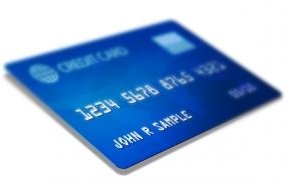Building Good Business Credit for Small Business Owners
What Small Business Owners Should Know
At a time when small business financing is so hard to come by, maintaining good business credit has become an essential part of running a successful business. Banks, vendors, potential investors and business partners, as well as other companies interested in trading with a particular business, will likely consider the business’ credit rating before entering into any transactions or extending credit.
Surprisingly, though many small business owners may realize the importance, they may be at a loss when it comes to knowing how to build it up. Much of the confusion can be attributed to a sea of misconceptions and conflicting messages that are often propagated by the credit industry itself even in the wake of the recent credit reform act.
The truth about establishing credit is that it involves much more than just creating a separate business credit profile, paying bills on time, or having a business credit card. Those who are starting or running a small business should make sure to keep the following tips and information in mind while trying to build up their business’ credit profile:
A Separate Business Credit Profile Can Still Be Linked to Personal Credit
One of the first pieces of advice that finance experts offer small business owners is to separate their business credit from the personal credit profile. Many business owners are unaware of this option, especially if they are running a sole proprietorship or a partnership, and they finance their businesses with their own credit and assets.
It is under-emphasized, however, that business owners of both sole proprietorships and partnerships are still held liable for their company’s debts, and if such a business is having financial difficulty, then their personal credit histories will be affected. Moreover, lenders often consider the personal credit history of the business owners (especially when dealing with a new business) when deciding whether or not to extend credit.
Those who want complete separation between their business credit and their personal profile, should consider setting their business up as either a corporation or a Limited Liability Company (LLC).
Not All Transactions Will Affect a Business’ Score
Though banks, credit card companies, utility, and phone companies generally report billing and credit information to the major credit bureaus, the same is not true for all businesses. This means that a business owner can spend years faithfully paying off vendors, suppliers, and distributors, etc and it will not affect the business’ credit score one bit. That said, business owners should specifically seek out those businesses that report to the major credit bureaus (D&B, Experian, Equifax and TransUnion) and make it a point to do business with them in order to build both their credit and their reputation.
Credit Cards are Created Equal
Business owners in search of a credit card may be surprised to know that many so-called business credit cards are little more than a personal credit card with a fancy name change. Not only are business owners held personally liable for the debt incurred, but all transactions are reported on their personal credit profiles, and their personal debt-to-credit limit ratios are affected. Other business credit cards may report transaction information solely to the business’ credit profile, but nevertheless hold the business owner personally liable for all debts, which can be a problem if the business defaults.
Bottom line: business owners should be aware that a true business credit card will report transaction information solely to the business’ credit profile and the business owner is not held personally liable for the debts incurred. Anyone considering a business credit card should be sure to read the fine print carefully.
Errors are Hard to Fix
Many small business owners are unaware of the fact that there are currently no laws protecting businesses from the credit bureaus. This means that should a business owner find an error on the business’ credit report, the credit bureaus are under no obligation to change the information. (This is unlike consumer credit, where the credit bureau has 30 days to research the matter or the entries in question are automatically removed from the report.)
That said, it is extremely important for business owners to regularly monitor their business credit profiles. These reports should be checked once or twice a year from each of the major credit bureaus. Business owners should be aware, however, that if their business is denied credit, they can request a free copy of the credit report within 60 days of being rejected. (One just needs to send a copy of the rejection letter along with a request for the business’ credit report to the credit reporting agency.) Business owners should also work to keep clear and accurate financial records so that if a dispute comes up there is sufficient evidence to back up the claim and the process can be carried out as quickly as possible.
In short, with a little effort and know-how one can build good business credit and avoid the most common pitfalls.
Image Courtesy of Sxc.hu/highwing
